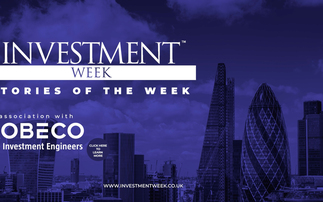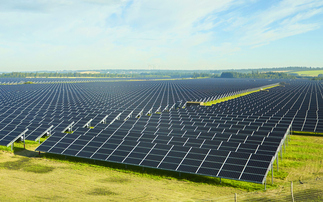There has been forward guidance, backtracking, and a lot of false starts, but as the world's largest economies continue to recover, the question over which developed region will raise rates first looms large.
The global economic recovery, while not exactly entrenched, has at least withstood a few bumps recently - starting with the taper tantrum last year - and while stimulus remains in play for now, expectations are mounting that rates will rise soon to curtail climbing inflation.
Statements from central banks have so far missed the mark, most memorably from the Bank of England governor Mark Carney whose attempts to provide some clarity via forward guidance mis-fired somewhat after he linked a rise in rates with the employment rate, only to seemingly distance himself when the 7% unemployment threshold was breached.
Meanwhile, disappointing US data has also pushed back expectations for a US Federal Reserve rate rise.
So which countries are most likely to be the first to raise rates, and how quickly will they hike them? Royal London economist Ian Kernohan and PIMCO sterling portfolio head Mike Amey share their views.

1. The UK
The UK recovery makes last year's fears of a triple-dip recession somewhat quaint. Both commentators expect the Bank of England to increase rates in the first quarter of 2015, ahead of the US.
"The domestic economy looks like it is doing very well," Amey said. "In the next few months, we will see clear signs of wage growth coming through, and that is the last piece of the puzzle." According to Amey's forecast, the Bank of England will raise rates by 25 basis points every quarter, before settling at between 2-2.5%.
Kernohan also expects the Bank Rate to slowly rise over the next two years, to reach 1.75% by the end of 2016.

2. Canada
Carney's home country avoided as brutal a recession as the US or UK, and the central bank rate is already higher than these two countries, at 1%. Bank of Canada governor Stephen Poloz (pictured) has stressed his independence from the US Fed, seemingly giving him flexibility to act ahead of its larger neighbour.
However, in reality Canada's economy is closely tied to the US, and as such Kernohan believes a rate rise - while on the cards - would only come at the same time as the US. "If the Fed is raising rates next year, I expect the Bank of Canada will as well," he said.

3. The US
"The US cycle has been a little bit delayed," said Kernohan. "The rhetoric from the US Fed is still quite dovish. Although the US has been recovering for longer than the UK, we have not seen growth above 3%. Growth needs to be running at quite a high rate for the Fed to be tightening"
US policymakers will also be aware of the global shockwaves any rate rise may cause, according to Amey - an additional factor the Bank of England does not have to contend with.
Both commentators expect the Fed to raise rates in the second half of 2015. Like the Bank of England, Kernohan believes the US Fed rate will settle at 1.75% by the end of 2016. Amey expects rates to settle slightly higher, at 2%.

4. The eurozone
It is little surprise that the eurozone is expected to act much later than other major economies, given its ongoing problems. The latest readings show a stagnant region, whose largest economies - France, Germany and Italy - continue to struggle.
In the wake of the European Central Bank's decision to cut rates in June, neither commentator expects a rate rise for several years. They anticipate ECB president Mario Draghi's next move will be further loosening of monetary policy, perhaps even quantitative easing.
"Draghi is much more dovish than his predecessors," said Kernohan. "There were decisions in the past where the ECB suddenly hiked rates and was very Bundesbank about things. I think the argument has shifted now."
He does not expect to see a rate increase for many years: "The market has got one pencilled in for 2017." According to Amey, "any thought" of rate increases is "several years out".

5. Japan
A country undertaking a drastic series of policies - known as Abenomics - to try and reverse years of deflation, Japan's bank rate is rock bottom, currently sitting at 0%-0.1% after they cut it in 2010.
Prior to that, bank rate was still very low, having been near zero between 2001 and 2006, before peaking at 0.5% by 2007.
Inflation is finally returning, with the most recent data showing core inflation had climbed to 1.3%. The Bank of Japan - led by Haruhiko Kuroda (pictured) - is confident it can get the inflation rate up to 2% b y early 2015, but Kernohan said the country remained the least likely to raise rates.
"They have had these rock bottom rates for many years, and they are more likely to ease policy," he said.
"There had been some speculation when we had Abenomics that by now there might be a substantial recovery, but we are not assuming they raise rates."













